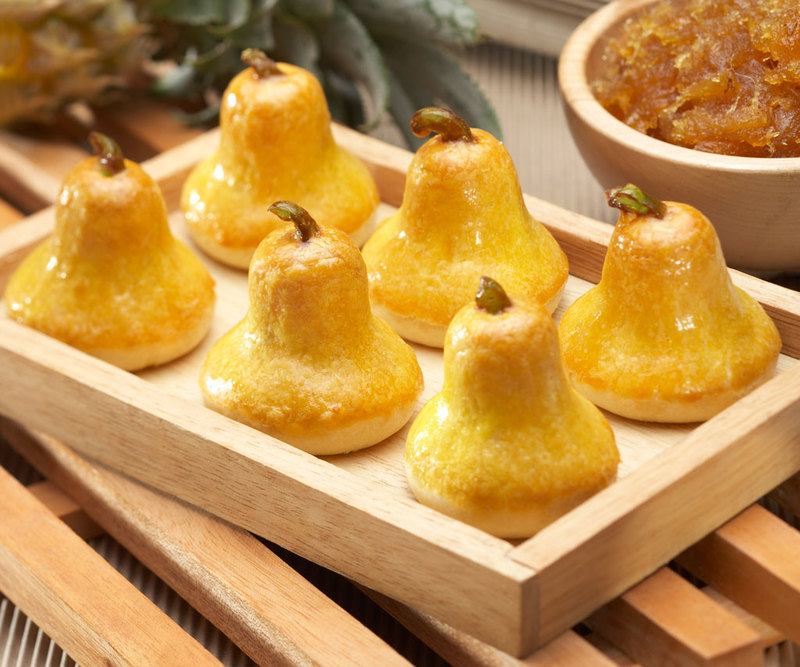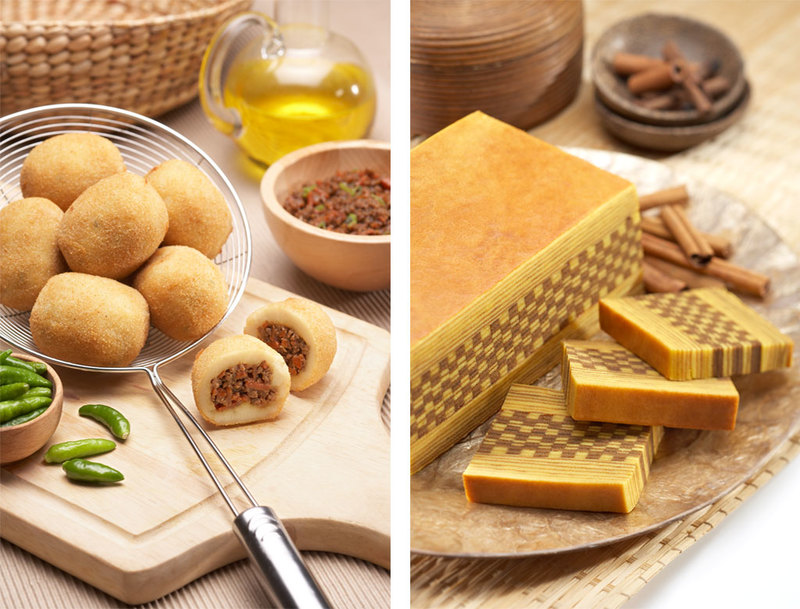Many Indonesian heritage cakes and finger foods trace their roots to the Dutch colonial era (from 1596 to 1942), such as kaasstengels which, from its Dutch name, is surely created by the Dutch. And, there are popular Indonesian heritage delicacies, such as nastar and lapis legit, that combine Dutch baking methods with locally sourced ingredients, like pineapples and spices. By combining the best of Indonesian and Dutch cultures, those delicious treats were born. Food and cake trends may come and go, however Indonesian heritage finger food and cakes have always been popular. Holland Bakery is one of the places to visit if you want to taste delicious classic delicacies.

“Among our timeless products which have been on offer since we opened our first bakery in 1978, and are still favourites to this day, you will find classic chocolate bread and Long John doughnuts that are rarities at premium bakeries in Jakarta,” says Gunawan Tri Prasetyo, Marketing & Creative Design Manager of Holland Bakery.
Holland Bakery is, as explained by Gunawan, “one-stop bakery store”, meaning whether you look for modern or trendy bread, cakes and finger food or authentic heritage ones, you can find them at Holland Bakery, such as traditional Indonesian lemperayam (steamed glutinous rice, filled with seasoned shredded chicken, wrapped in a banana leaf) is found amid the modern Japanese cheesecake.
As a premium bakery, Holland Bakery uses premium ingredients to create the best taste. “About 60 per cent of our products’ ingredients are sourced from imported brands, such as Anchor from New Zealand and Wijsman from the Netherlands,” notes Gunawan.
Despite its name, Holland Bakery, which was established in 1978 in Jakarta, has no ties with the Netherlands; Holland Bakery is a famous Indonesian bakery chain with more than 400 stand-alone bakeries and outlets in Jakarta, Bogor, Karawang, Bandung, Surabaya, Lampung, Batam, Pekanbaru, Makassar, Manado, Bali, Solo, Semarang, Balikpapan and Samarinda.
Despite not being connected to the country that inspired its name, it offers heritage products that trace their roots to the Dutch colonial era, such as kuesoes (soesjes in Dutch), nastar (ananastaartjein Dutch), kaasstengels, lapis legit (spekkoekin Dutch)and kroket(croquette), among others.
In my opinion, lapis legit and nastar are two of the most popular heritage delicacies. I love those Dutch-influenced baked items too, and it is safe to say that the best nastarand lapis legit always use Dutch Wijsman butter.
Lapis means layer, while legit means very sweet – do not let the word “legit” deters you from tasting lapis legit; all of lapis legit cakes sold in the market are not too sweet for my liking (and I do not have a sweet tooth).
The multi-layered lapis legit, whose original name is spekkoek, was created by Dutch women who lived in Indonesia during the Dutch colonial era. It was named spekkoek thanks to its streaky appearance, which resembles bacon (spekmeans bacon, and koekmeans cake in Dutch).
While the cake-making technique is surely influenced by European style, but this sweet treat is enhanced with Indonesian spices, including cardamom, cinnamon and nutmeg.
Lapis legit, I believe, is the most expensive Indonesian heritage cake – it can cost more than IDR 500,000 per whole cake. Actually, all delicious lapis legit cakes (whatever their brands) are sold at premium prices.
This delicacy is usually made with 20 or 30 egg yolks and Dutch Wijsman butter among other ingredients. Besides the expensive ingredients, lapis legit is a very labour intensive cake.
This cake is –literally- slowly built, layer by layer, baking each one in the oven for approximately 3 or 5 minutes before another layer of batter is spread on top. Even though its nickname is thousand-layer cake, in reality, this cake normally contains between 15 and 20 layers.

I highly recommend Holland Bakery’s melt-in-your-mouth lapis legit cakes that have moist texture, and are rich and buttery – you can taste the quality of their premium ingredients, including the fragrant Dutch Wijsman butter, in every bite.
Holland Bakery offers two types of lapis legit, namely lapis legit prunes and original (I prefer the original cake, without prunes). The prunes version costs IDR 12,600 per slice, while the original is IDR 11,700 per slice. The whole cake version costs IDR 595,000 for lapis legit prunes and IDR 545,000 for the original one.
Holland Bakery’s nastaris also worth a try; this Indonesian heritage treat has always been popular since the bygone days. While the cake-making technique is influenced by Dutch or European style, the main ingredient, pineapple is locally sourced. The name, nastar, derives from ananastaartje or pineapple tart in Dutch – however, nastar is actually a bite-sized buttery cookie with pineapple jam filling.
Holland Bakery offers the usual, bite-sized cylindrical-shaped cookies as well as the unusual large water-apple shaped cookies. Nastar is one of my favourite snacks, hence I paid IDR 58,000 for a box of 10 big water-apple shaped nastar and IDR 88,000 for a container of 250 grams of bite-sized nastar. I especially like the taste of their homemade pineapple jam; as said by Gunawan, the jam is made in-house from scratch by using fresh pineapples.
Kaasstengels is also a favourite heritage delicacy in Indonesia. When the Dutch arrived in Indonesia, hundreds years ago, they introduced their love of kaas, or cheese, to Indonesians.
However, kaasstengelsin Indonesia (bite-sized, cylindrical-shaped buttery cheese cookies), is totally different with Dutch kaasstengelsin the Netherlands (cheese sticks that are actually classic puff pastry and cheese on top.) As for its price, I paid IDR 128,000 for 350 grams of Holland Bakery’s melt-in-your-mouth savoury cookies.
Speaking of heritage products, besides nostalgic cakes, Holland Bakery also offers various fried finger food, such as beef croquette (or kroket in both Dutch and Indonesian). This savoury snack, a heritage treat that is still popular to this day, is priced at IDR 8,500 per piece.
Over the years, Holland Bakery has been gradually introducing new products, such as the hip Japanese cheesecake and vegetable pizza, among others. All in all, Holland Bakery has managed to modernise without losing its classic taste – apparently, it is its recipe for success.
Holland Bakery:
To see the addresses of its stand-alone bakeries and outlets in Jakarta, visit www.hollandbakery.co.id
Delivery service / call center: +62-21 691 8181
Instagram: @hollandbakeryindonesia
NOTE: Holland Bakery’s products have been certified Halal, declaring that those goods are fit for Muslims to eat as they are free from pork, alcohol and certain other ingredients. The Halal label is important in Indonesia, where the majority of its population is Muslim.







